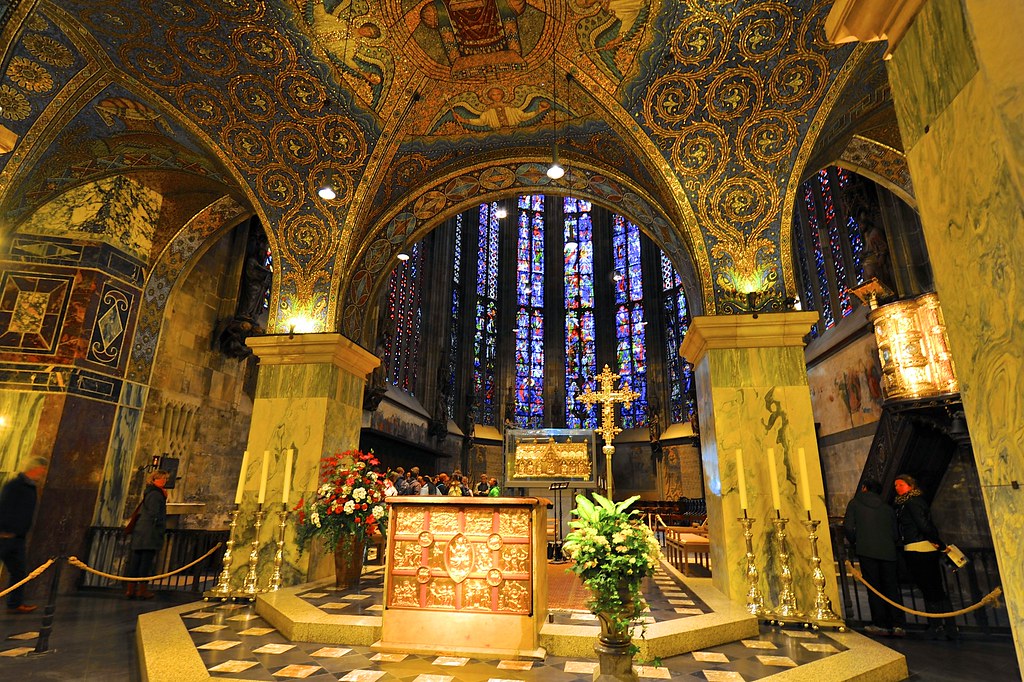

The expansion of the Umayyad Caliphate had continued unchecked for fifty years, until the Islamic Empire stretched from its home in Arabia across all the former dominions of the Persian Empire, Mesopotamia, Egypt, the whole of North Africa, Spain, and Anatolia. By 674, the Caliphate laid siege to the Roman capital Constantinople. The siege lasted five years, but the city held fast due to its formidable defenses and the Romans' use of "Greek fire," which appears to have been some kind of napalm.
In the West, the Caliphate was checked by the Franks, one of the "barbarian" tribes at the borders of the Western Roman Empire. The Franks had been united in 509 AD under King Clovis and his descendants, called the Merovingian Dynasty. When the Western Empire declined in the sixth century, the Franks moved into the territory the Romans called Gaul, but which would thenceforward be known as Francia.
By the eighth century, however, the Merovingian kings were more interested in reigning than ruling, and political power lay in the hands of the Mayor of the Palace. In 715, a man named Charles, who would later be known as Charles Martel ("Charles the Hammer"), became Mayor of the Palace.
The Caliphate invaded France from Spain, but were defeated by Charles at the Battle of Tours in 732. The Caliphate retreated back to Spain and made no further serious attempts to invade Europe from the West.
Power passed to Charles' son, Pepin. Pepin wrote a letter to the Pope, asking, "In regard to the kings of the Franks who no longer possess the royal power: is this state of things proper?" Pope Zachary carefully replied that it was important to call things what they are. Pepin overthrew the Merovingians and became king himself, founding the Carolingian Dynasty (named after his father.)
Under Pepin, Francia became the most powerful state in western Europe. During his reign, a Germanic tribe called the Lombards invaded Italy. Realizing the Emperor in Constantinople was unable to defend Rome, the pope turned to Pepin for help. The Franks swept into Italy and defeated the Lombards, giving much of northern Italy to the pope and creating the Papal States.
Pepin's son was also named Charles, but is known to history as "Charles the Great" or, in French, "Charlemagne." The alliance between the Carolingians and the papacy would continue to drive European politics for a long time.